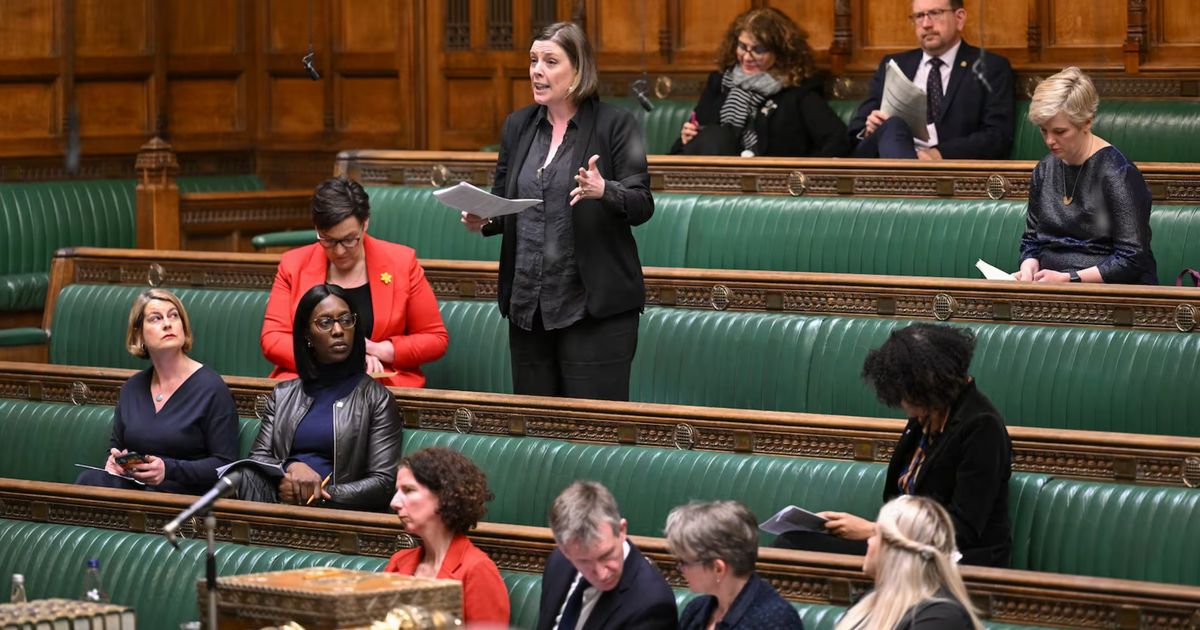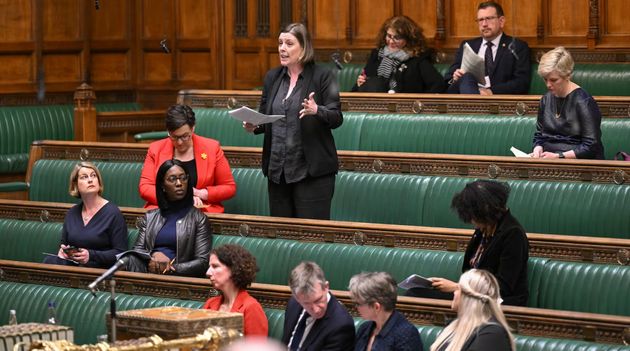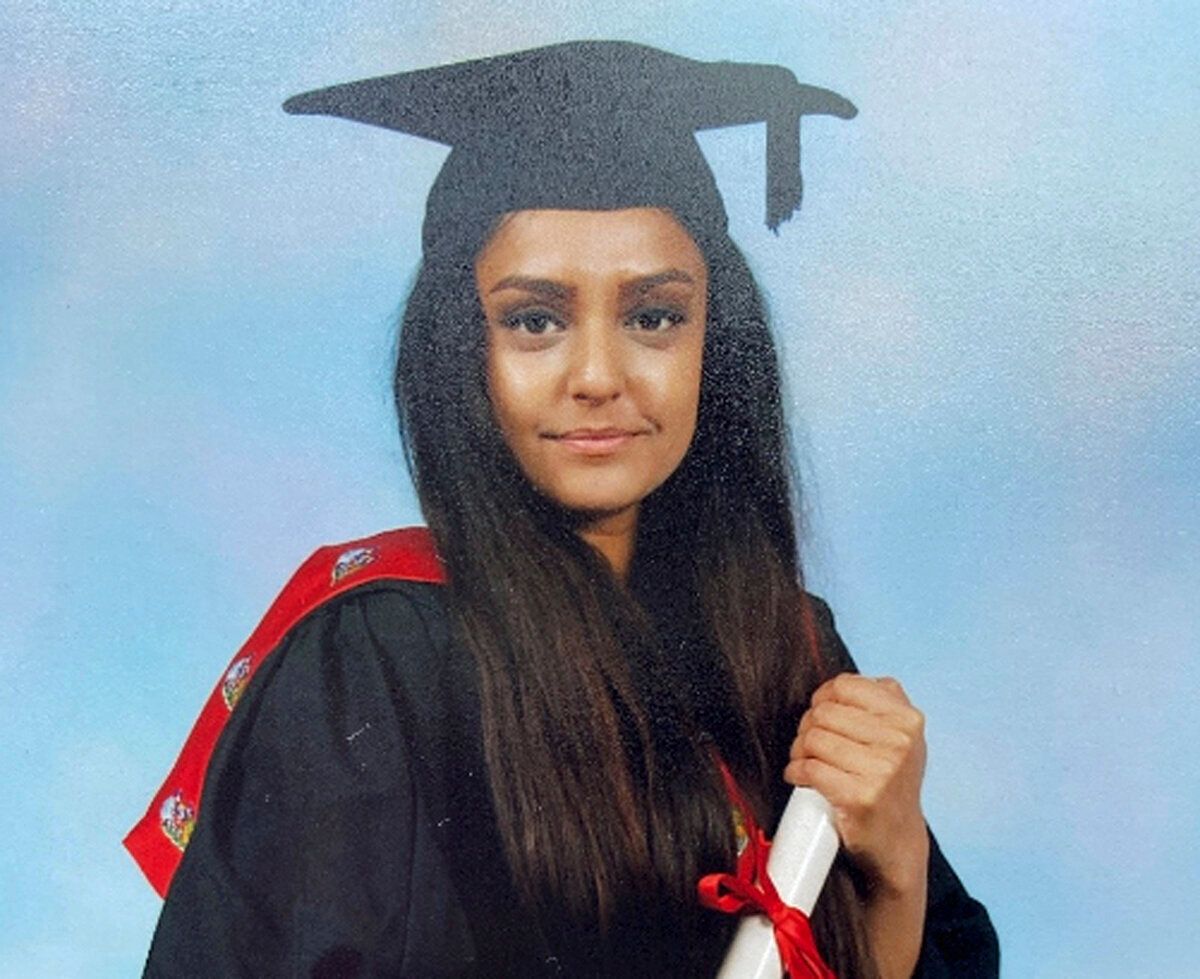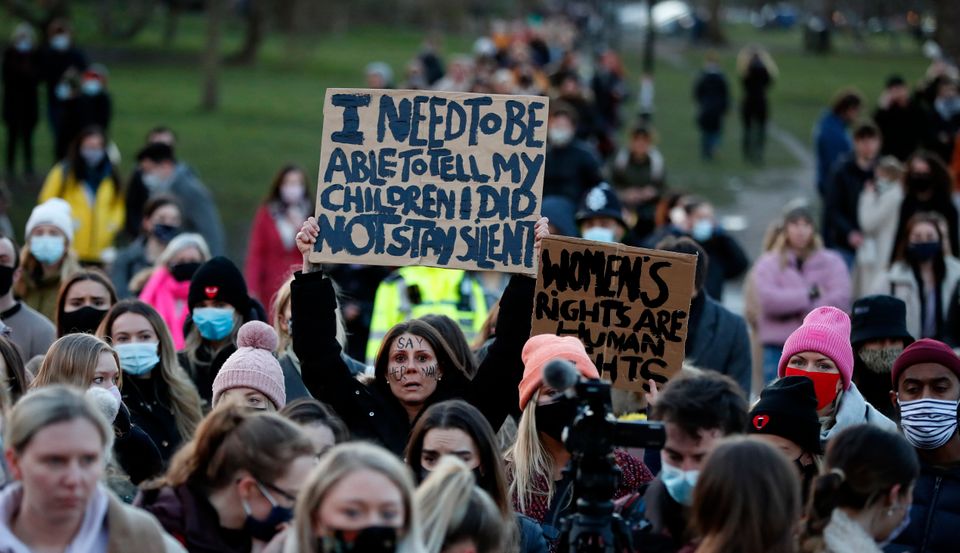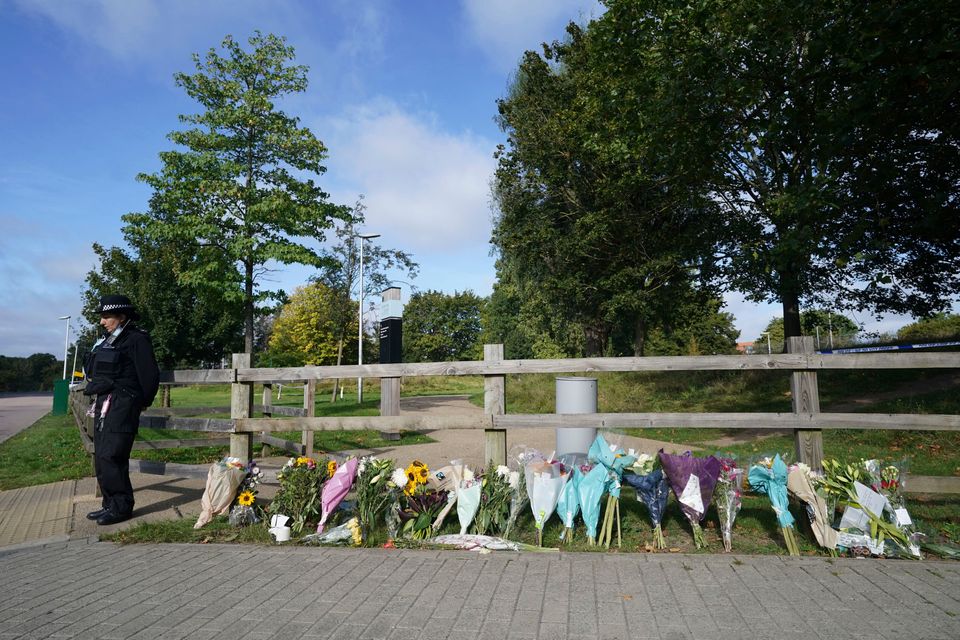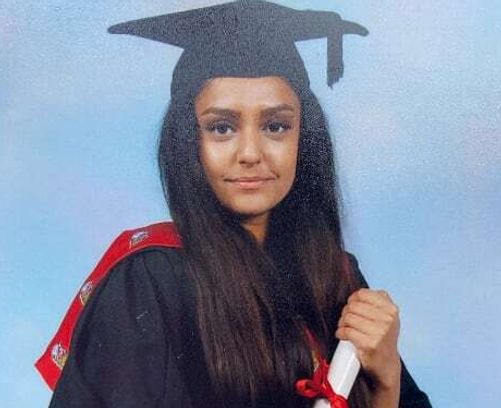The outpouring of pain and anger following the death of Sarah Everard is because women “have had enough”, says Mandu Reid, the leader of the Women’s Equality Party.
“We’ve had enough of the violence perpetrated against us by men, and we’ve had enough of police and politicians not taking it seriously,” the London Mayoral candidate tells HuffPost UK.
“We want to be free to walk the streets without fear of harassment or violence.”
Reid’s comments come ahead of a planned vigil on London’s Clapham Common on Saturday evening that thousands are anticipated to attend, and which organisers say is to “reclaim these streets and our public spaces”.
The 33-year-old’s disappearance on Wednesday March 3 between Clapham and Brixton, followed a week later by the arrest of a serving Metropolitan Police officer on suspicion of her murder, has shaken women to the core.
Because while we may not know Sarah Everard personally, many of us feel that we – or those we know – could easily be Sarah Everard: a woman who was simply walking home after meeting a friend.
The disturbing case has seen women share their own experiences of being followed home, as well as other forms of street harassment, intimidation and violence, both on social media and in private messages and conversations among friends.
Amid the public outpouring, one criminology expert warned women not to “get hysterical” in relation to Everard’s case.
Talking on BBC Radio 4′s Today programme, Professor Marion Fitzgerald of Kent University, said: “Women account for about a third of all murders. Men are far more likely to be murdered. Men are far more likely to be murdered by someone they don’t know. Men are far more likely to be murdered in a public place, and that hasn’t changed.
“I think I’m entitled to say as a woman, we shouldn’t pander to stereotypes and get hysterical.”
But the clear distress expressed on social media in recent days shows “just how differently women experience public space compared to men,” stresses Andrea Simon, director of End Violence Against Women (EVAW).
“The fact that the public conversation has for so long revolved around what actions women must take to ‘keep themselves safe’ rather than what drives perpetrators is really worrying,” she tells HuffPost.
Saturday’s vigil will take place around the bandstand on Clapham Common at 6pm, following reports that police knocked on doors in the area and told women “not to go out alone”.
“We believe that streets should be safe for women, regardless of what you wear, where you live or what time of day or night it is. We shouldn’t have to wear bright colours when we walk home and clutch our keys in our fists to feel safe,” the organisers wrote on Facebook.
“It’s wrong that the response to violence against women requires women to behave differently. In Clapham, police told women not to go out at night this week. Women are not the problem.”
Thousands online have been detailing the many ways women are taught to adjust their behaviour from a young age – stick to the main path, carry your keys, wear bright clothes and text a friend your whereabouts – in a moment reminiscent of #MeToo.
Although the recent social media conversation has been sparked by Everard’s case, women with many different stories have been stepping up to tell them.
Maya Tutton, co-founder of the campaign group Our Streets Now, points out that “public sexual harassment is universal” among women and girls – but the way it plays out is often more pronounced among discriminated groups.
“Not all experiences of public sexual harassment are the same. Sexism is often combined with racism, transphobia, ableism and fatphobia. These incidents are not only more common, but can escalate into racist, Islamophobic or homophobic hate crimes,” she says.
“Harassment doesn’t happen to one kind of body, and yet in our conversations it is so often the white, cisgendered heteronormative experience that is shared.”
The vigil is “for and about women, but open to all,” say the organisers, who urge participants to observe Covid-19 safety guidelines including wearing a mask, social distancing, downloading the NHS contact tracing app and turning their Bluetooth on.
Participants are invited to bring a light for those who’ve died at the hands of violent men, with a strong stance against victim-blaming – a rhetoric that has increased in the wake of Everard’s story.
Women on Twitter have been sharing historic examples, as well as incidents that show some men do not register the magnitude of the issue.
Our Streets Now is currently pushing for street harassment to be made illegal, through its #CrimeNotCompliment campaign, which demands a clear law that criminalises public sexual harassment.
Research conducted by the campaign group alongside Plan International UK found 76% of girls who have experienced harassment have never reported it to the police.
“As it stands, there is no UK law that fully criminalises public sexual harassment, leaving the perpetrators free to get away with it. As one of the girls we work with put it, you can be fined for dropping litter in the UK, but not for harassing a woman in public,” Tutton says. “The girls we work with tell us that they fear they won’t be taken seriously, or believed, if they report harassment, or that anything will be done.”
The group is also working in schools and higher education institutions to get public sexual harassment into the curriculum – for girls and boys. Simon would also like to see the narrative shift to focus on the behaviour of perpetrators.
“We’re always talking about how women ‘safety plan’ – text their friends in advance, walk with their keys in their hands, avoid empty tube carriages or poorly lit areas. But we rarely hear about what drives perpetrators to harm women and what needs to be put in place to stop this behaviour,” she says.
“Like with all acts of violence against women, we need solutions that target the behaviour of perpetrators and not risk blaming victims when they are attacked for simply going about their daily lives.”
Reid is hopeful this week will mark a “turning point” because “women won’t stay silent”.
“We need justice for Sarah and for all the women who have been killed, raped or abused. We need this to be a political and policing priority,” she says. “We need sufficient funding for prevention and support services. And we need equality, because violence against women is both the cause and consequence of women’s inequality.”
